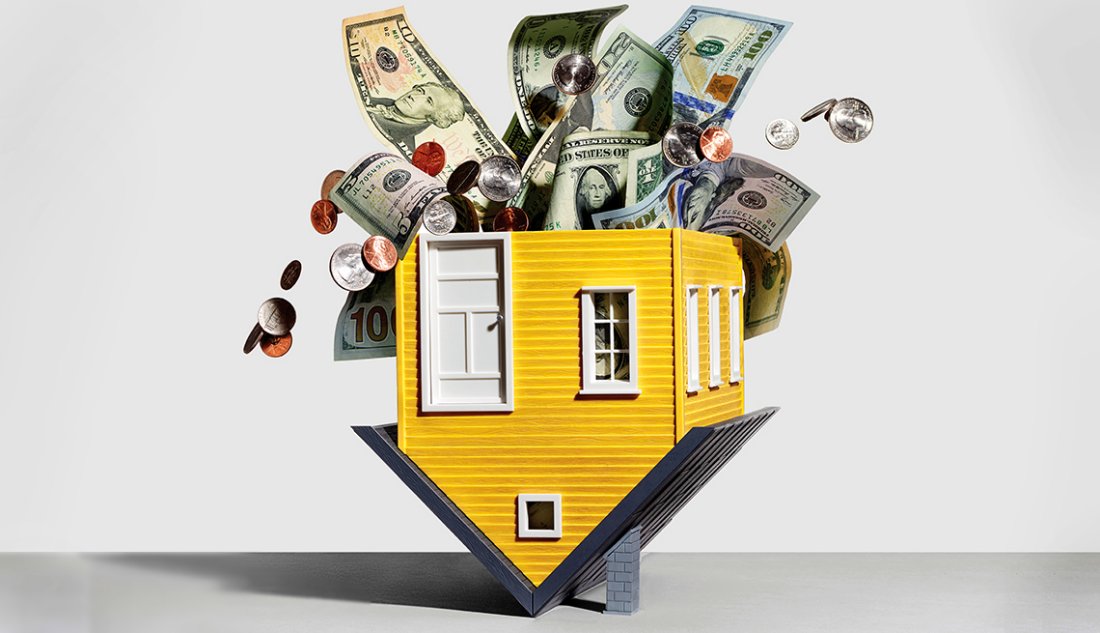In such conditions, expectations are for house prices to moderate, because credit will not be readily available as generously as earlier, and "individuals are going to not have the ability to afford rather as much home, given higher rates of interest." "There's an incorrect narrative here, which is that most of these loans went to lower-income folks.
The investor part of the story is underemphasized." Susan Wachter Wachter has discussed that refinance boom with Adam Levitin, a professor at Georgetown University Law Center, in a paper that describes how the housing bubble occurred. She remembered that after 2000, there was a substantial expansion in the cash supply, and rates of interest fell significantly, "causing a [re-finance] boom the similarity which we had not seen prior to." That stage continued beyond 2003 since "many gamers on Wall Street were sitting there with absolutely nothing to do." wesley financial group llc They found "a new kind of mortgage-backed security not one related to refinance, however one related to expanding the home mortgage financing box." They likewise discovered their next market: Debtors who were not effectively qualified in terms of income levels and down payments on the houses they bought along with financiers who were excited to purchase - what is the concept of nvp and how does it apply to mortgages and loans.
Rather, investors who made the most of low home loan finance rates played a huge role in fueling the housing bubble, she explained. "There's an incorrect story here, which is that most of these loans went to lower-income folks. That's not real. The investor part of the story is underemphasized, but it's real." The evidence shows that it would be inaccurate to explain the last crisis as a "low- and moderate-income occasion," stated Wachter.
Those who could and wished to cash out in the future in 2006 and 2007 [took part in it]" Those market conditions likewise brought in customers who got loans for their second and third homes. "These were not home-owners. These were investors." Wachter said "some fraud" was likewise associated with those settings, specifically when individuals listed themselves as "owner/occupant" for the houses they financed, and not as investors.
How Much Is Tax On Debt Forgiveness Mortgages Can Be Fun For Everyone
" If you're an investor leaving, you have absolutely nothing at threat." Who bore the cost of that at that time? "If rates are decreasing which they were, successfully and if down payment is nearing absolutely no, as an investor, you're making the cash on the upside, and the downside is not yours.
There are other unwanted effects of such access to inexpensive cash, as she and Pavlov noted in their paper: "Possession rates increase because some customers see their loaning restraint relaxed. If loans are underpriced, this result is amplified, because then even formerly unconstrained debtors efficiently choose to purchase rather than lease." After the housing bubble burst in 2008, the variety of foreclosed houses available for investors surged.
" Without that Wall Street step-up to purchase foreclosed residential or commercial properties and turn them from home ownership to renter-ship, we would have had a lot more down pressure on costs, a great deal of more empty homes out there, costing lower and lower rates, resulting in a spiral-down which occurred in 2009 without any end in sight," said Wachter.
But in some ways it was necessary, because it did put a flooring under a spiral that was happening." "An essential lesson from the crisis is that even if someone wants to make you a loan, it does not suggest that you ought to accept it." Benjamin Keys Another frequently held perception is that minority and low-income families bore the force of the fallout of the subprime loaning crisis.
Indicators on What Is The Interest Rate Today On Mortgages You Need To Know
" The reality that after the [Terrific] Recession these were the families that were most struck is not proof that these were the households that were most provided to, proportionally." A paper she wrote with coauthors Arthur Acolin, Xudong An and Raphael Bostic took a look at the increase in own a home throughout the years 2003 to 2007 by minorities.
" So the trope that this was [brought on by] lending to minority, low-income families is just not in the data." Wachter also set the record directly on another aspect of the marketplace that millennials prefer to lease rather than to own their houses. Surveys have actually revealed that millennials desire be homeowners.
" One of the significant outcomes and naturally so of the Great Economic crisis is that credit history needed for a home mortgage have increased by about 100 points," Wachter noted. "So if you're subprime today, you're not going to be able to get a mortgage. And many, numerous millennials regrettably are, in part since they might have taken on student financial obligation.
" So while down payments do not need to be big, there are actually tight barriers to gain access to and credit, in terms of credit scores and having a constant, documentable earnings." In terms of credit gain access to and threat, because the last crisis, "the pendulum has swung towards an extremely tight credit market." Chastened perhaps by the last crisis, increasingly more individuals today choose to lease rather than own their house.

How To Reverse Mortgages Work If Your House Burns Can Be Fun For Anyone

Homeownership rates are not as resilient as they were between 2011 and 2014, and notwithstanding a minor uptick just recently, "we're still missing out on about 3 million homeowners who are tenants." Those three million missing out on property owners are people who do not qualify for a home loan and have actually ended up being occupants, and consequently are rising rents to unaffordable levels, Keys noted.
Prices are already high in development cities like New York, Washington and San Francisco, "where there is an inequality to begin with of a hollowed-out middle class, [and in between] low-income and high-income occupants." Locals of those cities deal with not simply greater housing prices however likewise greater rents, which makes it harder for them to conserve and ultimately purchase their own home, she included.
It's just much more hard to end up being a property owner." Susan Wachter Although real estate rates have actually rebounded in general, even changed for inflation, they are not doing so in the markets where houses shed the most value in the last crisis. "The resurgence is not where the crisis was focused," Wachter stated, such as in "far-out residential areas like Riverside in California." Rather, the need and higher costs are "focused in cities where the jobs are." Even a years after the crisis, the real estate markets in pockets of cities like Las Vegas, Fort Myers, Fla., and Modesto, Calif., "are still suffering," said Keys.
Plainly, house prices would ease up if supply increased. "Home builders are being squeezed on two sides," Wachter stated, describing rising costs of land and building and construction, and lower demand as those aspects push up prices. As it occurs, the majority of new building and construction is of high-end homes, "and understandably so, since it's pricey to build." What could assist break the pattern of rising real estate prices? "Regrettably, [it would take] a recession or a rise in interest rates that maybe causes an economic downturn, together with other factors," said Wachter.
https://a.8b.com/ >Some Known Details About How Subprime Mortgages Are Market Distortion Learn more
Regulative oversight on loaning practices is strong, and the non-traditional loan providers that were active in the last boom are missing out on, however much depends upon the future of guideline, according to Wachter. She specifically referred to pending reforms of the government-sponsored enterprises Fannie Mae and Freddie Mac which guarantee mortgage-backed securities, or plans of housing loans.